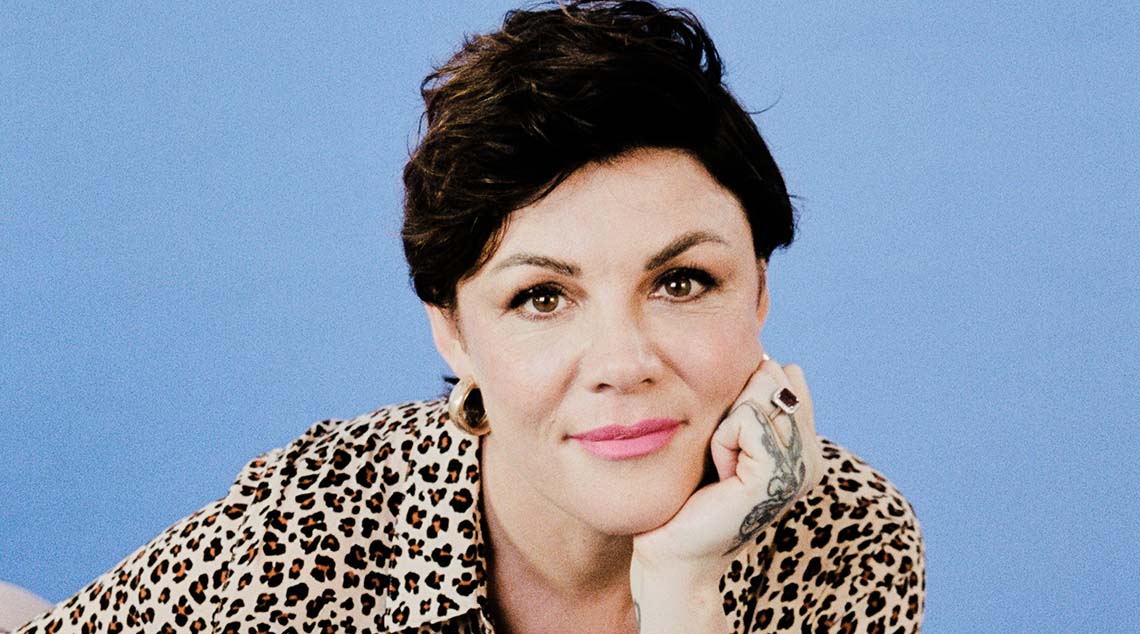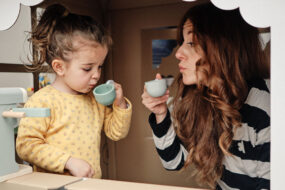Em Rusciano: ‘I felt relief, then shame and finally grief’
Comedian, media identity and podcaster Em Rusciano opens up about living with ADHD and ASD — and the challenges and triumphs of being neurodivergent.
Powerhouse performer Em Rusciano admits she has always felt like she was from another planet.
“Like each day, I’d pop on my human costume and try to pass as one of the locals,” the comedian, media identity and podcaster explains.
“However, the possibility of being neurodivergent wasn’t something I’d ever considered, given every representation in the media was the lived experience of white boys and men — certainly not a chronically exhausted, 44-year-old mother of three.”
Getting an ADHD diagnosis
Em says when she went to the doctor on the brink of a nervous breakdown, he suggested she get tested for attention deficit hyperactivity disorder (ADHD).
“Thankfully, he’d read an article on the growing number of women diagnosed with ADHD and recognised a lot of me in the new diagnostic criteria,” she says.
Upon reflection, Em says, she now sees that her life has been coloured by undiagnosed ADHD and ASD (autism spectrum disorder).
“The signs were blatantly obvious now that I know what those signs are — the way I’d study other girls to try to fit in, the elaborate fantasy worlds I created, not knowing how much eye contact to make, feeling like strong smells and loud noises were assaulting me at every turn,” she explains.
An emotional journey
“When diagnosed I felt relief, then shame and finally grief,” Em says.
The grief hit her the hardest.
“I felt sad for my 10-year-old self who tried desperately to fit in and be like the other kids but was deemed either way too much or not quite enough,” she reveals.
Em also had to contend with the reactions of others.
“Many people found it challenging to accept that I am autistic,” she says.
“It’s understandable when you consider the media presentations of autistic people.
“With the exception of Chloe Hayden’s character Quinni in Heartbreak High, women are pretty much absent in the media or it’s a negative, stereotypical depiction, which sends the message that being neurodivergent is a negative thing.
“It impacts individuals seeking a diagnosis and how the people around them receive that diagnosis.”
A zebra among horses
Em says finding out she is AuDHD — having both autism and ADHD — has ultimately been hugely positive.
“It forced me to re-examine the way I view myself and how I move in the world,” she says.
“My whole life I’d been told I was a horse, and when I wasn’t able to do what the other horses could do, I naturally thought I was a crap horse.
“Turns out, I’m not a horse at all — I’m a zebra!”
More inspiring stories:
- Brooke Blurton: I’ve learnt that everyone’s story is powerful’
- Why Dylan Alcott is driven to help young Aussies with disability
- The AFLW’s Hosking twins are living life to the fullest
- Anabelle Smith on how to tackle setbacks like an Olympian
Written by Siobhan Duck.





